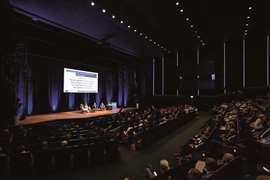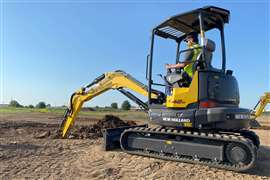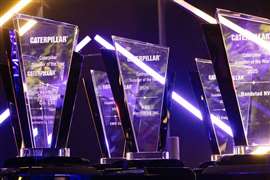Read this article in French German Italian Portuguese Spanish
Opinion: Why your sustainability message should focus on progress, not perfection
23 April 2024
It’s been exciting to be a part of the power industry these past few years and witness — in some cases, help launch — some incredible new power technologies that are making real progress in advancing sustainability. But there are some lingering questions for those in the power industry, with one of the biggest being how companies can demonstrate authenticity, transparency and a proven commitment to sustainability.
As the off-highway, power generation and commercial vehicle industries continue to navigate sustainability, communicating on this topic is no longer just about conveying messages; it’s about meaningful dialogue, communicating with purpose and getting your facts straight.
It is no longer enough to talk about net zero goals and develop ideas about how they might be achieved. In fact, making these types of claims in Europe has the potential to land a company in hot water under new laws introduced in the European Union (EU) at the start of the year.
Instead, stakeholders expect sustainability and purpose to be woven through the fabric of a brand’s identity. But how can they achieve the right balance of message and data to make their voice heard? There are some common themes that appear in the most successful examples.
Start With Why
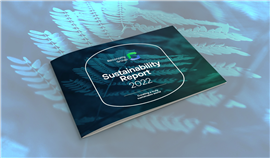 A hard copy of international circular economy specialist Reconomy’s 2022 sustainability report (Photo: Reconomy)
A hard copy of international circular economy specialist Reconomy’s 2022 sustainability report (Photo: Reconomy)
It may seem cliché to start with why, but a brand’s purpose must be more than a series of buzzwords that lose resonance over time. It’s a set of guiding principles that infuse every action and communication in a cohesive way. That’s why it’s important to start with why.
Purpose-led communication is all about standing for something beyond profitability. It’s about demonstrating how and why you are committed to environmental, social and governance (ESG) causes that align with your brand, your customers and wider global goals.
Of course, when we talk about the “why,” we must also show the “how.” But knowing why will drive meaningful conversations about what you are doing. It’s what you’ll be remembered for.
Getting Facts Straight
We’ve all seen countless examples of embellished achievements or language that glosses over shortcomings. Goodness knows that sections of the PR industry have fuelled this throughout the years. In today’s world, however, greenwashing is a very real and serious offence. As mentioned earlier, the EU imposed legislation at the start of the year to combat deceptive environmental claims through its greenwashing directive. It imposes strict guidelines on the accuracy and transparency of sustainability messaging, meaning companies are held accountable for misleading information.
There’s no question this is a good thing, but how can companies ensure they guard against greenwashing? The answer, of course, is with facts. Being measured in language and avoiding exaggerated claims are the starting points, but providing data is the only true way to validate claims.
It’s also important for companies to present a well-rounded and balanced assessment of any sustainability initiatives. That means acknowledging progress and areas for improvement. This will help to foster a credible, authentic relationship with your audience while simultaneously offering protection from the implications of greenwashing.
Discussing the Challenges
Being transparent is a surefire way of building and maintaining long-term trust with stakeholders. And transparency isn’t just about showcasing success. It also means being candid about the challenges and the journey to overcome them.
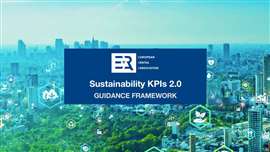 The European Rental Association (ERA) has issued to guidance on sustainability KPIs for rental. (Image: ERA)
The European Rental Association (ERA) has issued to guidance on sustainability KPIs for rental. (Image: ERA)
The new greenwashing directives mean that brands are now forced to be upfront about the tangible sustainability progress they are making. In many ways, this is a good thing. It allows companies to tell their story over a longer timeframe and kickstart discussions online and at events on the progress that is being made.
Acknowledging the challenges a company is facing helps create a stronger connection with audiences and shows a commitment to continuous improvement.
In the global power segment there are some big, fragmented and complex industries. So, it stands to reason that there is a long road to travel, and what truly matters is progress — not perfection.
No Single Solution
As discussed earlier, the journey toward greener off-highway, power generation and commercial vehicle industries will require multiple aspects. Thus, it’s important to avoid presenting a “one-size-fits-all” solution.
Because sites and fleets vary in size, scope, regulation, geography and more, each has a unique set of sustainability requirements. Brands should be encouraged by this and view it as an opportunity to celebrate and communicate diverse approaches.
It’s also important to remember that efforts extend beyond a single product or process and should cover the entire lifecycle. From sourcing materials to manufacturing and construction to end use and on to disposal or recycling, there are so many chances to enhance sustainability, and each has its own story.
Seek Collaboration
The strongest advances in sustainability are generally achieved through cooperation and partnership. In fact, collaboration is one of the biggest trends in this area. Think about how your company might join with other brands to form powerful partnerships that can double the expertise and supercharge the results.
Much like the collaborations we see across the supply chain in delivering projects, the same can apply in driving sustainability. The bonus is that these sustainability gains also often result in better efficiency and innovation, too.
Ultimately, by collaborating with others, companies can demonstrate their commitment — not only to their customers, but to building a more resilient world.
|
POWER SOURCING GUIDE
The trusted reference and buyer’s guide for 83 years
The original “desktop search engine,” guiding nearly 10,000 users in more than 90 countries it is the primary reference for specifications and details on all the components that go into engine systems.
Visit Now
STAY CONNECTED




Receive the information you need when you need it through our world-leading magazines, newsletters and daily briefings.
CONNECT WITH THE TEAM










